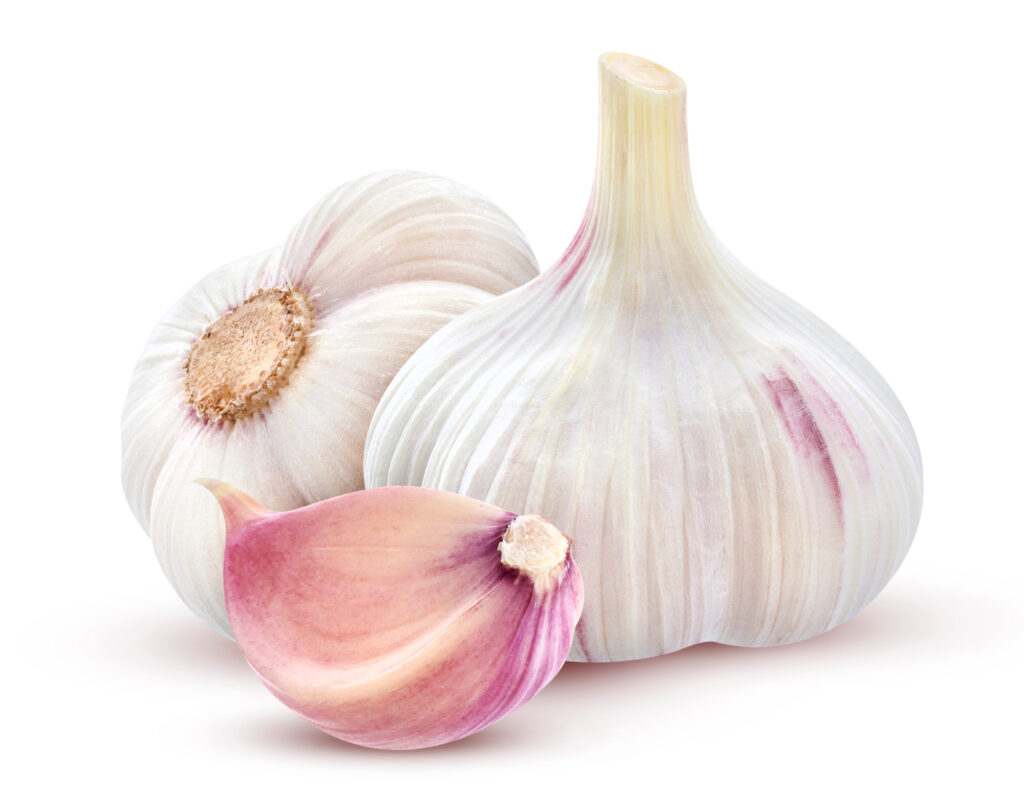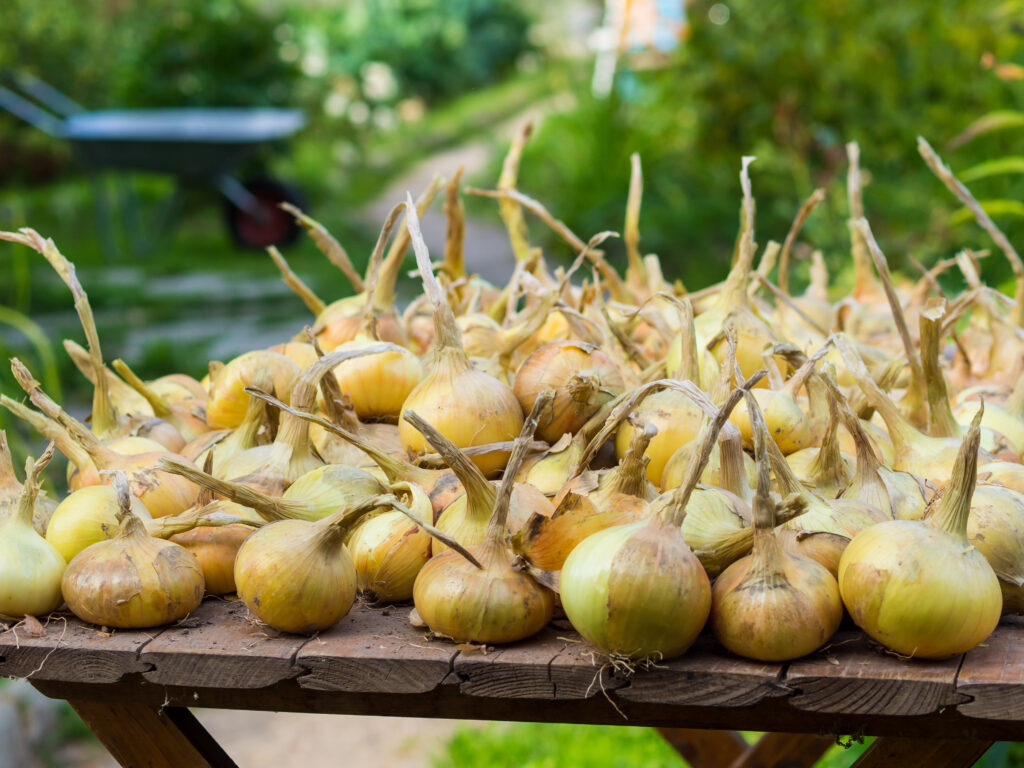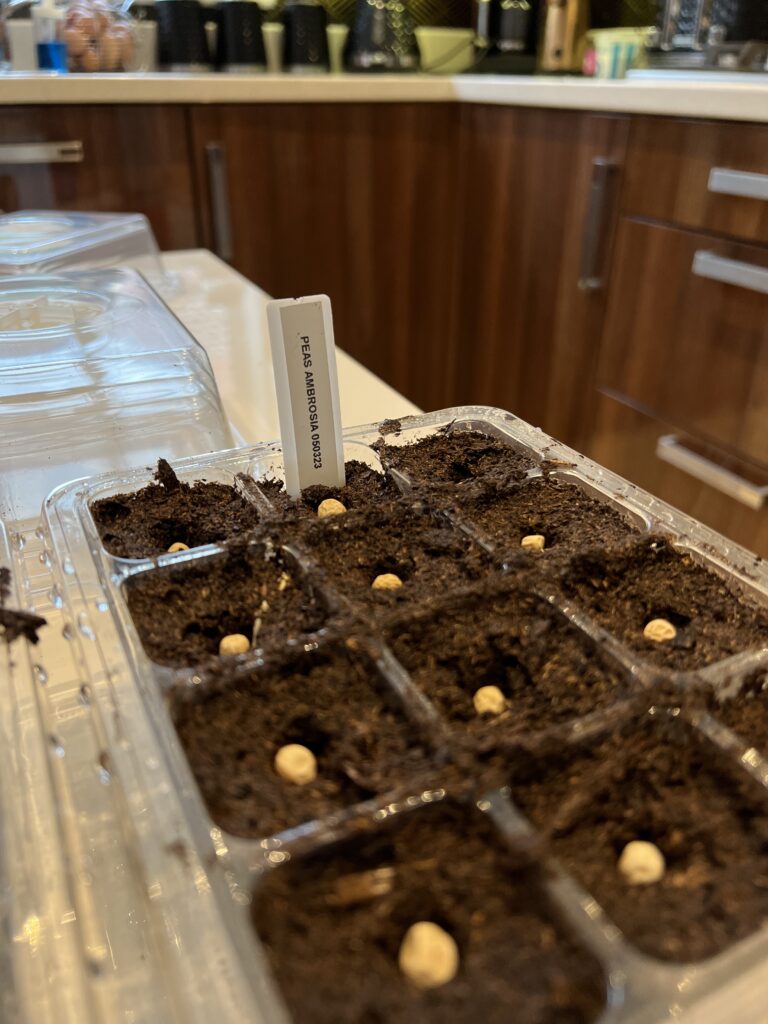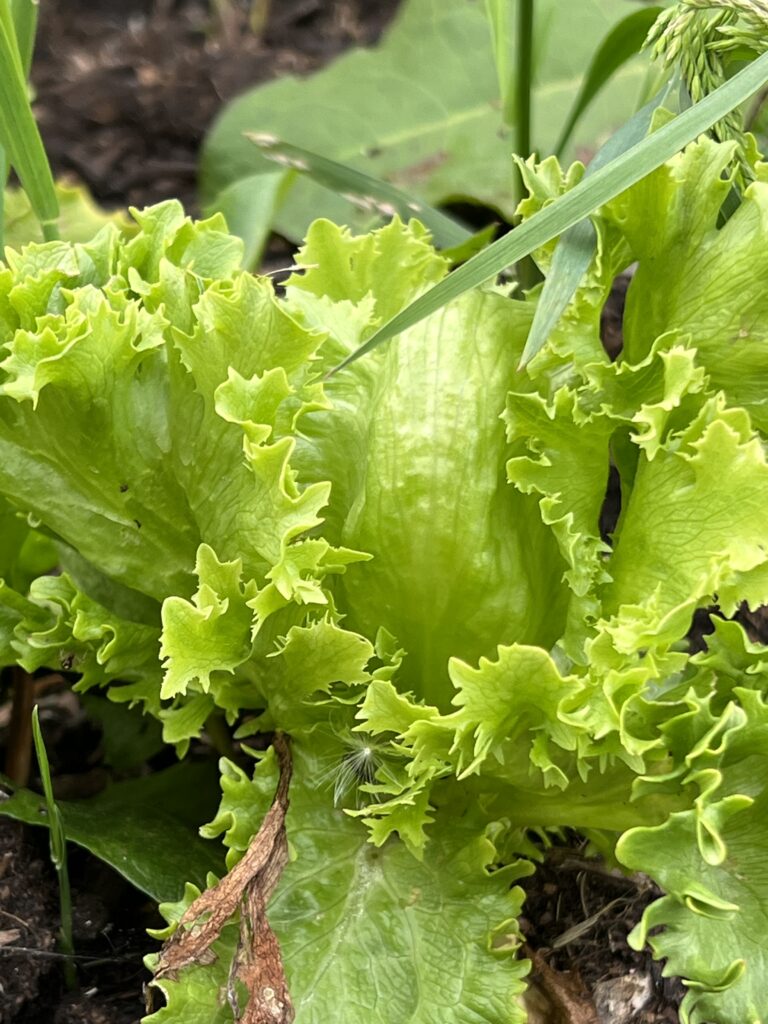It’s seems as if summer disappeared the very minute the kids returned to school this year, it’s safe to say we are well in to the winter approach! It might feel like the gardening season is winding down. However, autumn is an ideal time to plan and plant overwintering vegetables that will keep your allotment productive throughout winter and into early spring, with illness over the summer, I’m really keen to get as much veg back into the plot as possible whilst I’m still playing catch up!
To follow are some hardy crops that not only extend the growing season but also make the most of the colder months, I’ll be looking to grow these over the winter.

Garlic: We use so much, I’d be mad not to grow it!
Garlic is a fantastic crop to plant in autumn. Garlic bulbs benefit from cold weather, as exposure to lower temperatures encourages bulb formation. Plant your garlic cloves in well-drained soil, ideally before the first frost, so they can establish roots before winter sets in. Space the cloves around 6 inches apart and plant them with the pointed end facing upwards.
Hardneck garlic varieties like ‘Purple Wight’ are well suited to our climate and tend to produce larger cloves, while softneck varieties such as ‘Solent Wight’ store well and can last you through much of the next year.

Onions: Again, we certainly get through them!
Onions are another great crop to plant in the autumn. Overwintering onion sets are specially bred to withstand the colder temperatures and can be planted between September and November. These onions will grow slowly over the winter and start to bulk up when the weather warms in spring.
Choose varieties like ‘Radar’ or ‘Senshyu Yellow’, which are reliable and resistant to disease. When planting onion sets, make sure they are pushed gently into the soil with the tops just poking out, spaced about 10-15 cm apart. Onions are relatively low-maintenance, but keep an eye on weeds to ensure they’re not competing for nutrients.

Broad Beans: A Head Start on Spring
Sowing broad beans in autumn gives you a head start on the growing season, with the added benefit of avoiding the dreaded blackfly (which we struggle with year on year with spring-sown beans). These hardy legumes can survive frosty conditions and will sit quietly through the winter months before bursting into life in the spring.
Varieties like ‘Aquadulce Claudia’ and ‘The Sutton’ are ideal for autumn sowing, thriving in the colder weather. Plant the seeds directly into the ground at around 20-25 cm apart and in double rows if space allows. Broad beans will appreciate some support as they grow taller in the spring, so be ready to stake them if necessary.

Peas: A Cool Weather Favourite
Like broad beans, peas can be sown in autumn to get an early crop in spring. Winter-hardy varieties such as ‘Douce Provence’ or ‘Kelvedon Wonder’ are great choices for autumn sowing. Peas are less hardy than broad beans, so if you’re in a particularly cold region, consider sowing them under cloches or in a cold frame to provide extra protection.
Ensure you prepare the soil well, adding compost or well-rotted manure, as peas thrive in nutrient-rich conditions. Once established, they require little maintenance over winter.

Winter Salad Leaves: Quick and Productive
Don’t forget that not all overwintering crops need to take months to mature! Winter-hardy salad leaves such as mizuna, lamb’s lettuce, and winter purslane can be sown now for a steady supply of fresh greens throughout the colder months. These quick-growing crops will thrive in cooler weather and are perfect for growing in pots, cold frames, or directly in the ground.
You can also extend their growing season by protecting them with fleece or growing them in a greenhouse. The beauty of these crops is that they’re low maintenance and provide a fresh, nutritious harvest when most other plants have finished.
If you have time…
- Prepare Your Soil: Before planting overwintering crops, take the time to clear away any spent summer crops and weeds. Dig in compost or well-rotted manure to enrich the soil and give your new plants the best start.
- Use Protection: Depending on where you live in the UK, winter can bring harsh frosts and cold winds. Consider using fleece, cloches, or cold frames to provide protection and ensure your crops survive the worst of the winter weather.
- Mulch for Warmth: Adding a layer of mulch around your overwintering crops can help insulate the soil, keep roots warm, and suppress weeds.
- Regular Checks: Even though these crops are low-maintenance, it’s important to check them regularly. Remove any dead leaves, and make sure pests like slugs and pigeons aren’t taking advantage of your hard work.
Overwintering vegetables allows you to make the most of your allotment all year round. By planting garlic, onions, broad beans, and peas in the autumn, you’ll set yourself up for a fruitful early harvest in spring. With some planning and preparation, you can ‘grow your own’ even through the chilliest months!
Sarah 🌻
Views: 12
